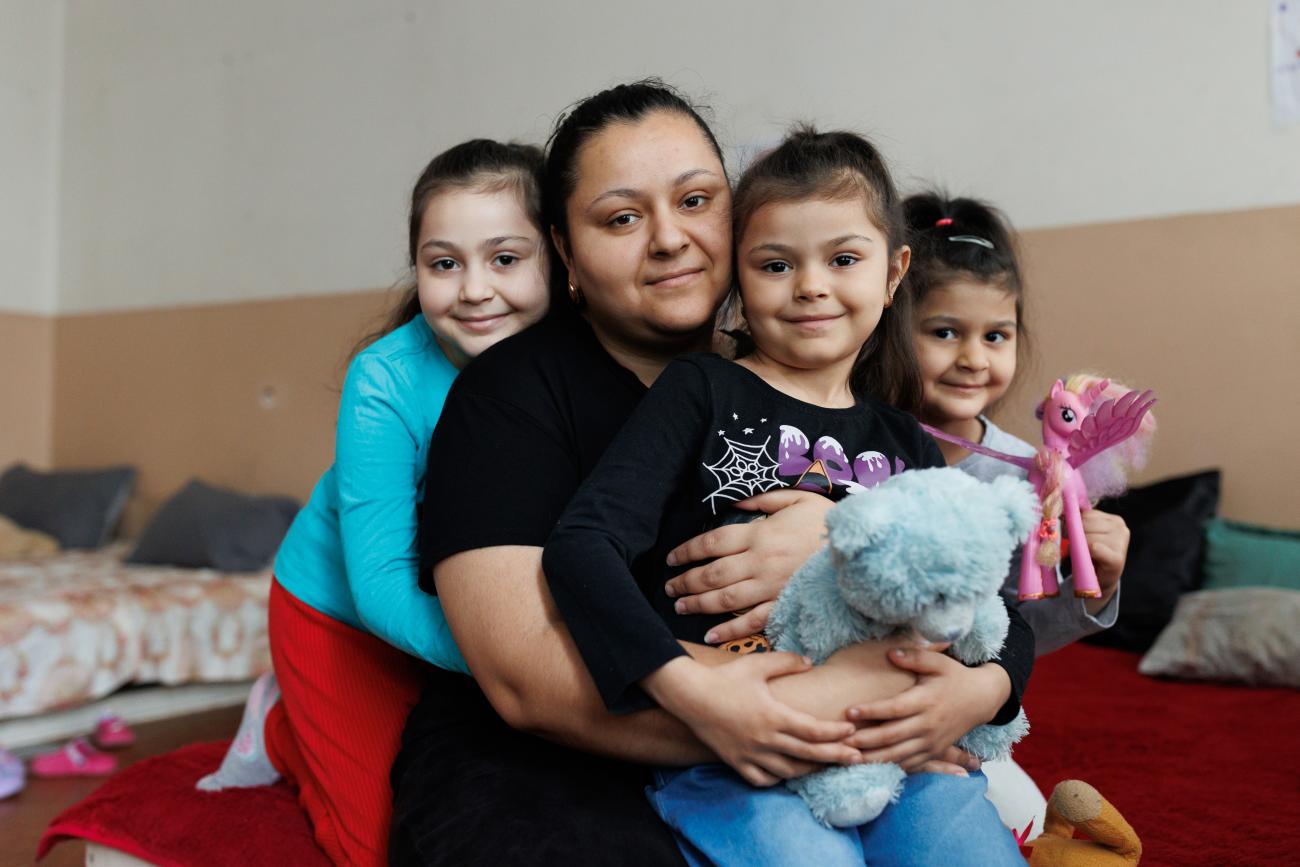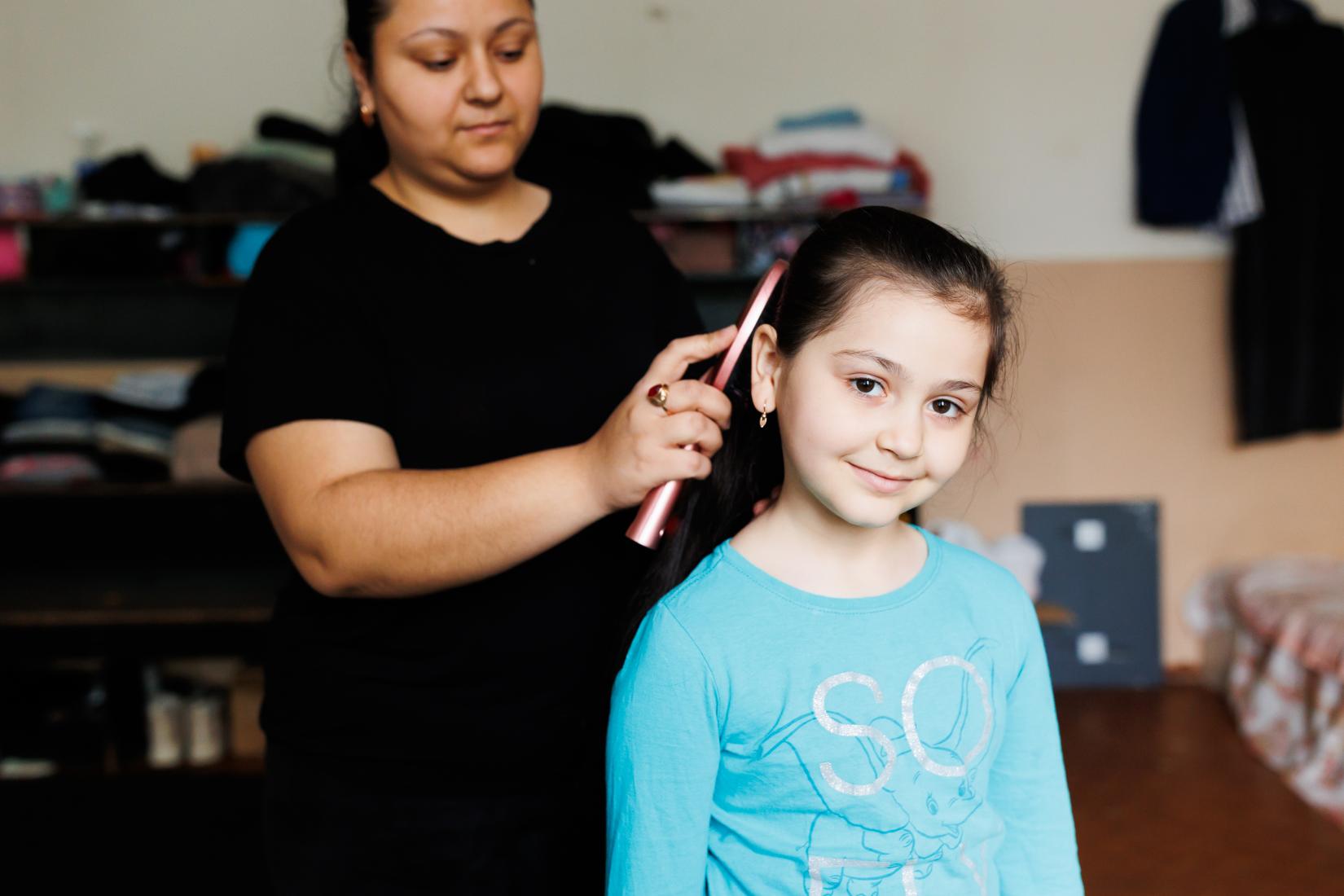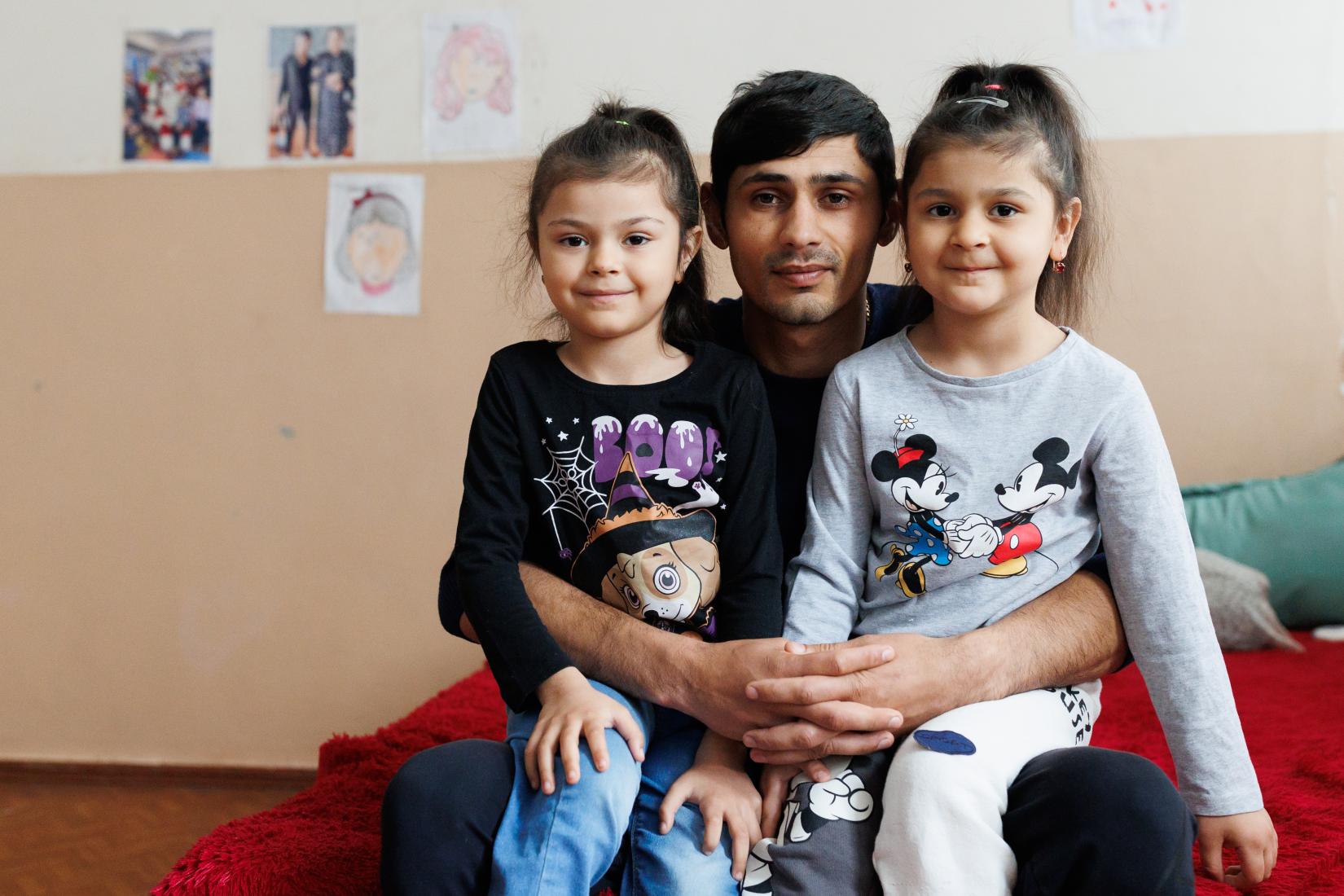We got vaccinated against measles to be safe – refugees’ experience in the Republic of Moldova

Brenda Rodita and Mihail Bucur, and their three daughters, Angelina, Victoria and Leila, fled to the Republic of Moldova due to the war in Ukraine.
They have been living at the refugee centre in Chisinau for several months and are grateful for the shelter provided. Brenda and Mihail are relieved that their daughters are safe and can enjoy life. They are particularly grateful that their daughters were recently vaccinated against measles, following detection of an outbreak at the centre. Since the beginning of 2024, 54 confirmed measles cases have been reported in the Republic of Moldova. This includes 18 cases reported in the refugee centre in in March-April 2024 among children and adults, many of whom required hospitalization.

“When the first cases of measles were detected in our refugee centre, we were very scared. The family doctor explained to us that the vaccines would protect us from getting sick and from serious forms of the disease. We immediately understood that vaccination is the best way to protect ourselves. We agreed to be vaccinated without hesitation. I believe it is our responsibility to protect our children and ourselves,” says Mihail.
“Fortunately, no one in our family got sick or had to be hospitalized. After the vaccination, we did not experience any adverse reactions, and we all felt fine. Today, thanks to most of the people in the centre being immunized, I am much more at ease and believe we are out of danger," says Brenda.
Due to the war in Ukraine, many children were not vaccinated on time, and some of those who were vaccinated could not present the necessary documentation in their host countries.
"All the refugees in the centre were worried when the first measles cases were confirmed. We talked to the parents and explained that the vaccine is effective and that they should not be afraid,” says Alla Savina, a community leader of the Roma community in the refugee accommodation centre. “Together with the family doctor and specialists from the National Public Health Agency, we met with the people in the centre to explain the benefits of vaccination. I have been vaccinated and agreed that all my children and three grandchildren, including my two-year-old granddaughter, should be vaccinated. Some people are hesitant to get vaccinated, but I am sure they will realise how important vaccination is for their health," she explained

"The majority of measles cases were among unvaccinated children, who were hospitalized and received all necessary medical care. The National Agency for Public Health intervened immediately and monitored the outbreak until the quarantine period ended. We discussed the importance of vaccination with the centre numerous times. More than 90 people were vaccinated in record time," said Nicolae Furtuna, Head of the Disease Prevention and Control Directorate of the National Agency for Public Health.
"Vaccination is a simple, safe and effective way to protect ourselves from disease, enabling children and adults of all ages to live longer and healthier lives. WHO is working together with partners to protect vulnerable populations from vaccine-preventable diseases, ensuring equity in the immunization process so that no one is left behind," added Dumitru Capmari, Immunization Programme Coordinator, WHO Country Office in the Republic of Moldova.
Immunization equity is crucial to ensure that all individuals, regardless of their background or circumstances, have access to life-saving vaccines. This principle is especially important in refugee centres, where populations are particularly vulnerable and at high risk of disease outbreaks. Most of the refugees accommodated in the centre in Chisinau are of Roma ethnicity.
The Ministry of Health, with the support of the National Agency for Public Health and the WHO Country Office in the Republic of Moldova, continues to monitor the health status of people in refugee accommodation centres and conduct information activities on vaccination.
Funding from a joint project of the European Union and WHO/Europe to support the deployment of COVID-19 vaccines and vaccination in the Eastern Partnership countries – Armenia, Azerbaijan, Belarus, Georgia, the Republic of Moldova and Ukraine – has been repurposed to address the immediate health needs of the conflict-affected population of Ukraine.


